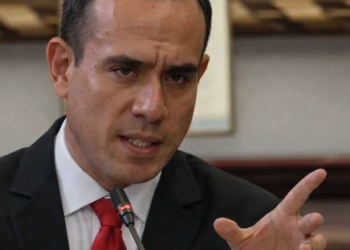After over a year of conflict, Israel and Lebanon seem closer than ever to a ceasefire. The Israeli cabinet is set to meet on Tuesday to discuss and likely approve a proposed deal with Hezbollah, which, if successful, could end the fighting that has escalated over the past two months.
The conflict began when Hezbollah started firing into Israel shortly after the Gaza war broke out, aligning itself with Hamas. Israel’s military response has been severe, dealing significant blows to Hezbollah, including the killing of its influential leader, Hassan Nasrallah.
Although Prime Minister Netanyahu’s office hasn’t commented on the ceasefire directly, optimism is running high among Israeli officials, Lebanese leaders, and international stakeholders. Both U.S. President Joe Biden and French President Emmanuel Macron have hinted that an agreement could be announced within the next 36 hours, aligning with the timing of Israel’s cabinet meeting.

What’s in the Proposed Deal?
The U.S.-mediated proposal includes several key points designed to bring stability to the region:
- Israeli Withdrawal: Israel would withdraw its military forces from southern Lebanon within 60 days.
- Lebanese Army Deployment: The Lebanese army would take control of the border region, which has long been dominated by Hezbollah.
- Oversight Mechanism: A committee involving five countries, chaired by the U.S. and including France, would monitor compliance with the agreement.
However, one sticking point is Israel’s demand to retain the right to strike in southern Lebanon if it perceives a threat. Lebanon has resisted this condition, calling it a violation of its sovereignty. Negotiators have been working to address this and other issues, such as the timing of troop movements and the return of displaced residents to southern Lebanon.
Diplomatic Efforts Gain Momentum
Recent diplomatic activity suggests significant progress. U.S. envoy Amos Hochstein reported breakthroughs in talks held in Beirut and later in Israel. Israeli Ambassador to the U.S., Michael Herzog, told a local radio station that the agreement is nearly finalized, with only a few details left to iron out.
This potential ceasefire draws from the framework of U.N. Security Council Resolution 1701, which ended the 2006 Israel-Hezbollah war. That resolution required Hezbollah to pull its fighters back 30 kilometers from the Israeli border and for the Lebanese army to take control of the region. However, both sides have accused each other of failing to honor those commitments in the past.
Challenges Ahead
Although the possibility of a ceasefire looks very likely, as negotiations so far have been profiting, there are still some challenges that are yet to be resolved that could pose a hindrance to the ceasefire or even a lasting deal. Some of these issues include;
- Sequencing Actions: Deciding the order in which Israeli troops withdraw, Lebanese forces deploy, and displaced civilians return to their homes.
- Trust Issues: Past accusations of non-compliance with similar agreements mean both sides are approaching this with caution.
For Israel, security remains a top priority, especially along its northern border. It wants clear mechanisms to prevent Hezbollah from rearming or re-establishing its presence south of the Litani River. On the other hand, Lebanon is focused on regaining control of its southern territory without compromising its sovereignty.
The impact of a ceasefire
All fingers remains cross as we await the conclusion of the Israeli cabinet meeting on Tuesday. If favourable, it could significantly de-escalate tensions in a region already strained by the ongoing Gaza war. A resolution here might also set an example for how international mediation can help resolve entrenched conflicts.
That said, the success of this agreement depends on the commitment of all parties to follow through on their promises. The monitoring committee, backed by powerful nations like the U.S. and France, will play a key role in ensuring accountability.
The Bottom Line
After months of violence and uncertainty, the proposed ceasefire offers a real chance for peace between Israel and Hezbollah. While hurdles remain, the willingness of both sides to engage in diplomacy gives hope for a more stable future in the region. The next few days will determine whether this deal can move from hopeful discussions to a lasting reality.

















